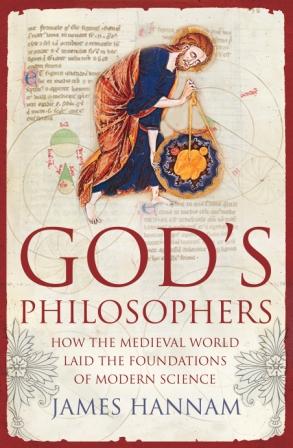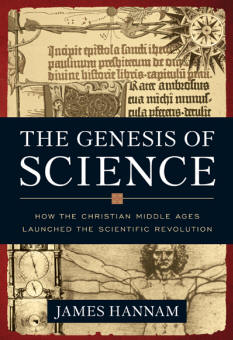
|
If you have enjoyed Bede's Library, you can order my book, The Genesis of Science: How the Christian Middle Ages Launched the Scientific Revolution (US) from Amazon.com or God's Philosophers: How the Medieval World Laid the Foundations of Modern Science (UK) from Amazon.co.uk. |
|
For my latest thoughts on science, politics, religion and history, read Quodlibeta
|
Scholarly opinions on the Jesus Myth
by Christopher Price
![]()
I have often been asked why more academics do not take the time to respond to the Jesus Myth theory. After looking into this question, I discovered that most historians and New Testament scholars relevant to the topic have concluded that Jesus Mythers are beyond reason and therefore decide that they have better things to do with their time. Here are some examples.
Howard Marshall
In his book, I Believe in the Historical Jesus, Howard Marshall points out that in the early to mid 20th century, one of the few "authorities" to consider Jesus as a myth was a Soviet Encyclopaedia. He then goes on to discuss the work of GA Wells which was then recently published.
- There is said to be a Russian encyclopaedia in current use which affirms in a brief entry that Jesus Christ was the mythological founder of Christianity, but it is virtually alone in doing so. The historian will not take its statement very seriously, since ... it offers no evidence for its assertion, and mere assertion cannot stand over against historical enquiry. But more than mere assertion is involved, for an attempt to show that Jesus never existed has been made in recent years by GA Wells, a Professor of German who has ventured into New Testament study and presents a case that the origins Christianity can be explained without assuming that Jesus really lived. Earlier presentations of similar views at the turn of the century failed to make any impression on scholarly opinion, and it is certain that this latest presentation of the case will not fare any better.
Professor Marshall was correct that neither any earlier attempt nor Wells have swayed scholarly opinion. This remains true whether the scholars were Christians, liberals, conservatives, Jewish, atheist, agnostic, or Catholic. And even GA Wells himself has now conceded that a real figure called Jesus lay behind some of the teaching contained in the synoptic Gospels.
Michael Grant
In his book Jesus: An Historian's Review of the Gospels, Atheist historian Michael Grant completely rejected the idea that Jesus never existed.
- This sceptical way of thinking reached its culmination in the argument that Jesus as a human being never existed at all and is a myth.... But above all, if we apply to the New Testament, as we should, the same sort of criteria as we should apply to other ancient writings containing historical material, we can no more reject Jesus' existence than we can reject the existence of a mass of pagan personages whose reality as historical figures is never questioned. Certainly, there are all those discrepancies between one Gospel and another. But we do not deny that an event ever took place just because some pagan historians such as, for example, Livy and Polybius, happen to have described it in differing terms.... To sum up, modern critical methods fail to support the Christ myth theory. It has 'again and again been answered and annihilated by first rank scholars.' In recent years, 'no serous scholar has ventured to postulate the non historicity of Jesus' or at any rate very few, and they have not succeeded in disposing of the much stronger, indeed very abundant, evidence to the contrary.
Will Durant
Secular scholar Will Durant, who left the Catholic Church and embraced humanism, also dismisses the idea in Caesar and Christ (the third volume of his Story of Civilisation), the
- The Christian evidence for Christ begins with the letters ascribed to Saint Paul. Some of these are of uncertain authorship; several, antedating A.D. 64, are almost universally accounted as substantially genuine. No one has questioned the existence of Paul, or his repeated meetings with Peter, James, and John; and Paul enviously admits that these men had known Christ in his flesh. The accepted epistles frequently refer to the Last Supper and the Crucifixion.... The contradictions are of minutiae, not substance; in essentials the synoptic gospels agree remarkably well, and form a consistent portrait of Christ. In the enthusiasm of its discoveries the Higher Criticism has applied to the New Testament tests of authenticity so severe that by them a hundred ancient worthies, for example Hammurabi, David, Socrates would fade into legend. Despite the prejudices and theological preconceptions of the evangelists, they record many incidents that mere inventors would have concealed the competition of the apostles for high places in the Kingdom, their flight after Jesus' arrest, Peter's denial, the failure of Christ to work miracles in Galilee, the references of some auditors to his possible insanity, his early uncertainty as to his mission, his confessions of ignorance as to the future, his moments of bitterness, his despairing cry on the cross; no one reading these scenes can doubt the reality of the figure behind them. That a few simple men should in one generation have invented so powerful and appealing a personality, so loft an ethic and so inspiring a vision of human brotherhood, would be a miracle far more incredible than any recorded in the Gospel. After two centuries of Higher Criticism the outlines of the life, character, and teaching of Christ, remain reasonably clear, and constitute the most fascinating feature of the history of Western man.
Rudolf Bultmann
Even the famously liberal Professor Bultmann, who argued against the historicity of much of the gospels, questions the reasonableness of Jesus Mythers themselves in Jesus and the Word.
- Of course the doubt as to whether Jesus really existed is unfounded and not worth refutation. No sane person can doubt that Jesus stands as founder behind the historical movement whose first distinct stage is represented by the Palestinian community.
Robert Van Voorst
It is also obvious that the diverse and all but completely unanimous opinion of modern Jesus scholars and relevant historians remain completely unconvinced by the Jesus Myth arguments. Robert Van Voosrt writes in Jesus Outside the New Testament:
- Contemporary New Testament scholars have typically viewed their arguments as so weak or bizarre that they relegate them to footnotes, or often ignore them completely.... The theory of Jesus' nonexistence is now effectively dead as a scholarly question.
Graham Stanton
Professor Stanton occupies the chair in New Testament Studies at Cambridge University and led the attack on Carston Theide's re-dating of the Jesus Papyrus. He considers the Jesus Myth crowd even more extreme as he writes in The Gospels and Jesus.
- Today, nearly all historians, whether Christians or not, accept that Jesus existed and that the gospels contain plenty of valuable evidence which as to be weighed and assessed critically. There is general agreement that, with the possible exception of Paul, we know far more about Jesus of Nazareth than about any first or second century Jewish or pagan religious teacher.
Given the broad consensus against the Jesus Myth, it has been left to a few non-professional commentators, such as Earl Doherty and GA Wells to question Jesus' existence. Despite their vigorous efforts, they have failed, and continue to fail, to even give their position respectability in the broader academic community.
Richard Carrier
It remains for each reader to determine what weight to give such a broad consensus of experts from such diverse perspectives. However, amateurs to the field of history generally and New Testament history in particular should consider the comments of Richard Carrier, co-founder of the Secular Web, made on their discussion board:
- Amateurs often disregard the crucial importance of field-familiarity, i.e. that one must have a long and deep acquaintance with a particular time and culture in order to make reliable judgments about the probable and improbable, the expected and unexpected, and all the other background assumptions necessary to understanding the significance of any particular fact or claim--in short, one must be cognizant not merely of the literary context of a statement, but its entire socio-historical context as well. And that is no easy thing to achieve.
-


